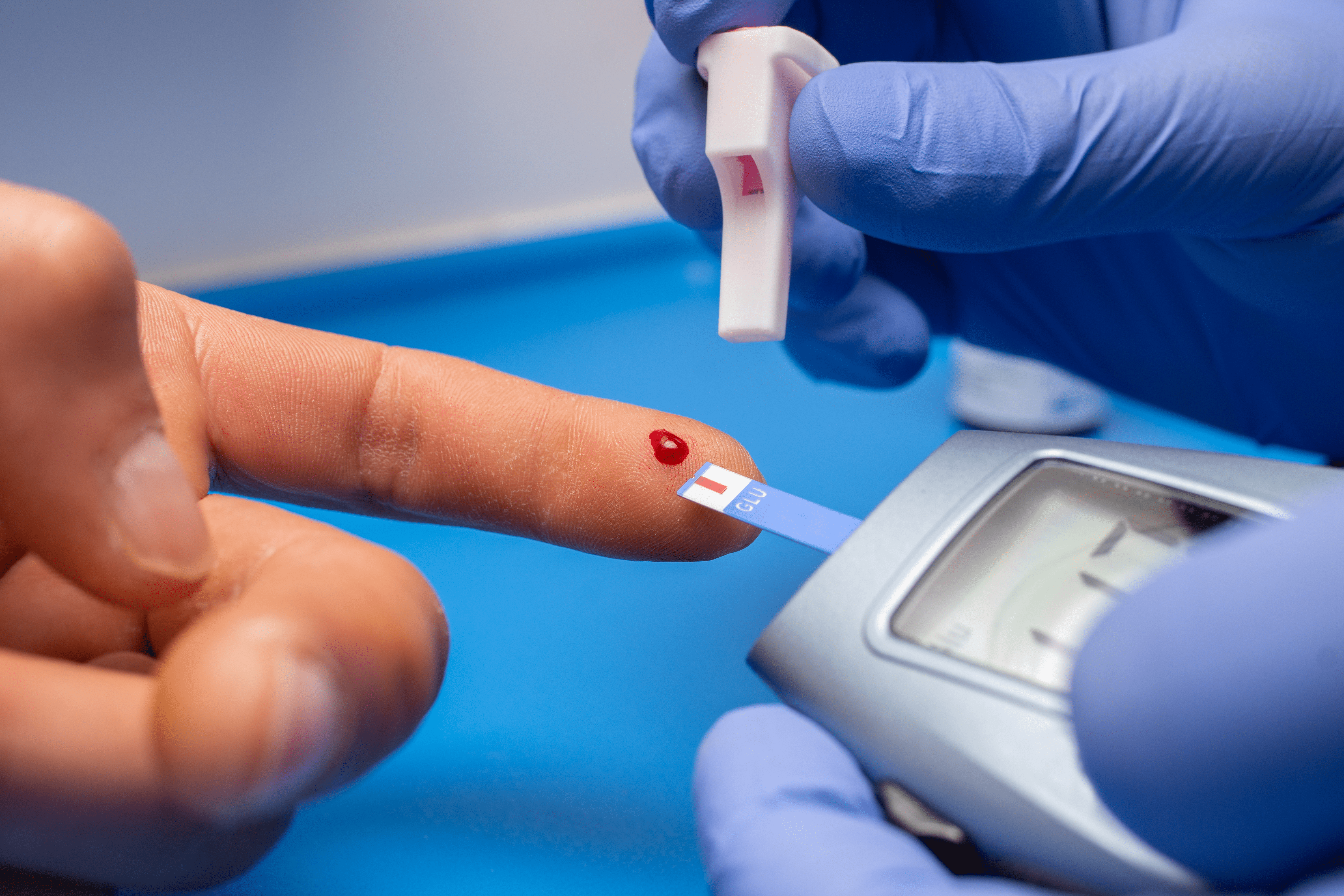
Obesity
Obesity, an excess of body fat, raises health risks and is often linked to diet and exercise habits.
Learn MorePredict diabetes and obesity risk - anytime, anywhere.
Get a personalized diet plan too!

Get initial health predictions through
our interactive system, designed for
a smooth and convenient experience,
on-site or online.


Obesity, an excess of body fat, raises health risks and is often linked to diet and exercise habits.
Learn More
Diabetes disrupts your body's sugar management, requiring careful monitoring or insulin for control.
Learn MoreObesity is caused by a complex interplay of factors, including genetics, environment, and lifestyle choices. Genetics can make some people more susceptible to weight gain, but environment and lifestyle play a major role. Consuming more calories than you burn, especially from unhealthy processed foods and sugary drinks, and a lack of physical activity are significant contributors to obesity.
Diabetes is a chronic condition where your body struggles to regulate blood sugar (glucose) levels. Normally, your body uses insulin, a hormone, to unlock cells and allow glucose in for energy. In diabetes, either the body doesn't produce enough insulin (type 1) or the cells become resistant to it (type 2).
The World Health Organization (WHO) recognizes obesity as a chronic disease. Obesity can lead to a number of other health problems, including type 2 diabetes, heart disease, stroke, certain cancers, and sleep apnea.
Early symptoms can be subtle, but may include frequent urination, increased thirst, excessive hunger, unexplained weight loss, fatigue, blurry vision, and slow-healing wounds.
There are a few ways to determine if you are obese. The most common method is to calculate your body mass index (BMI). BMI is a measure of weight relative to height. A BMI of 25 to 29.9 is considered overweight, and a BMI of 30 or greater is considered obese. However, BMI is not a perfect measure, and it may not be accurate for everyone, such as people with a lot of muscle mass. It's important to talk to your doctor about your weight and health concerns.
Type 1 diabetes: An autoimmune disease where the body attacks insulin-producing cells. It typically appears in childhood or young adulthood.
Type 2 diabetes: The most common type, where the body either doesn't make enough insulin or cells resist its effects. It often develops in adulthood, but can occur at any age.
In addition to lifestyle changes, there are a number of treatments available for obesity, including medications and surgery. Medications can help to suppress appetite or block fat absorption. Surgery, such as bariatric surgery, can be an option for people with severe obesity who have not been successful with lifestyle changes. It's important to talk to your doctor about the best treatment options for you.
Treatment depends on the type and severity. It often involves a combination of healthy eating, regular exercise, blood sugar monitoring, and medication. In some cases, insulin injections may be needed.
There is no one-size-fits-all answer to this question. However, the most effective way to lose weight and keep it off is to make gradual, sustainable changes to your diet and exercise habits. Aim to eat a healthy diet that is low in processed foods and sugary drinks, and focus on whole grains, fruits, vegetables, and lean protein. Aim for at least 150 minutes of moderate-intensity exercise or 75 minutes of vigorous-intensity exercise per week.
Type 1 diabetes cannot be prevented. However, type 2 diabetes can often be prevented or delayed through healthy lifestyle choices, including maintaining a healthy weight, eating a balanced diet, and getting regular exercise.